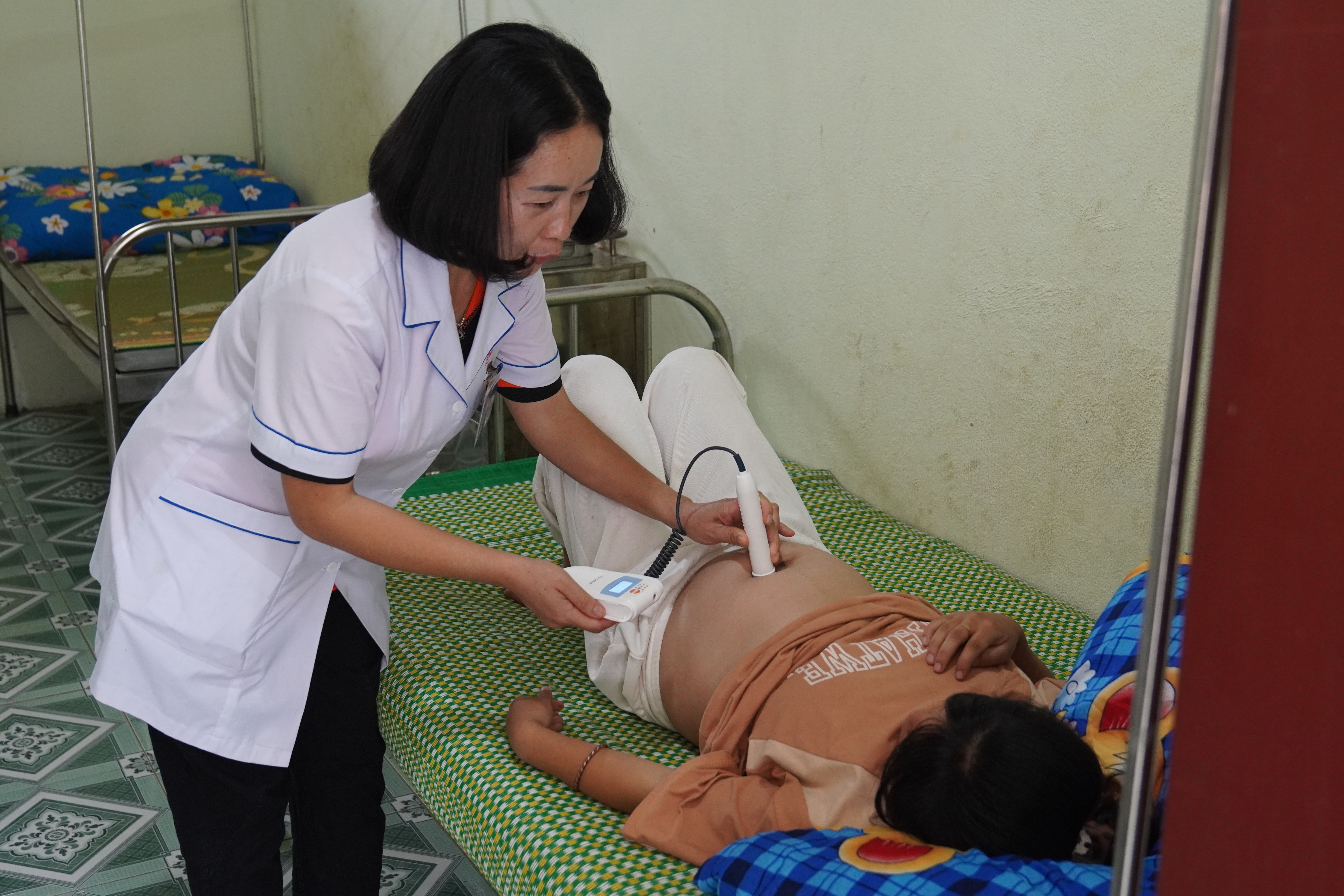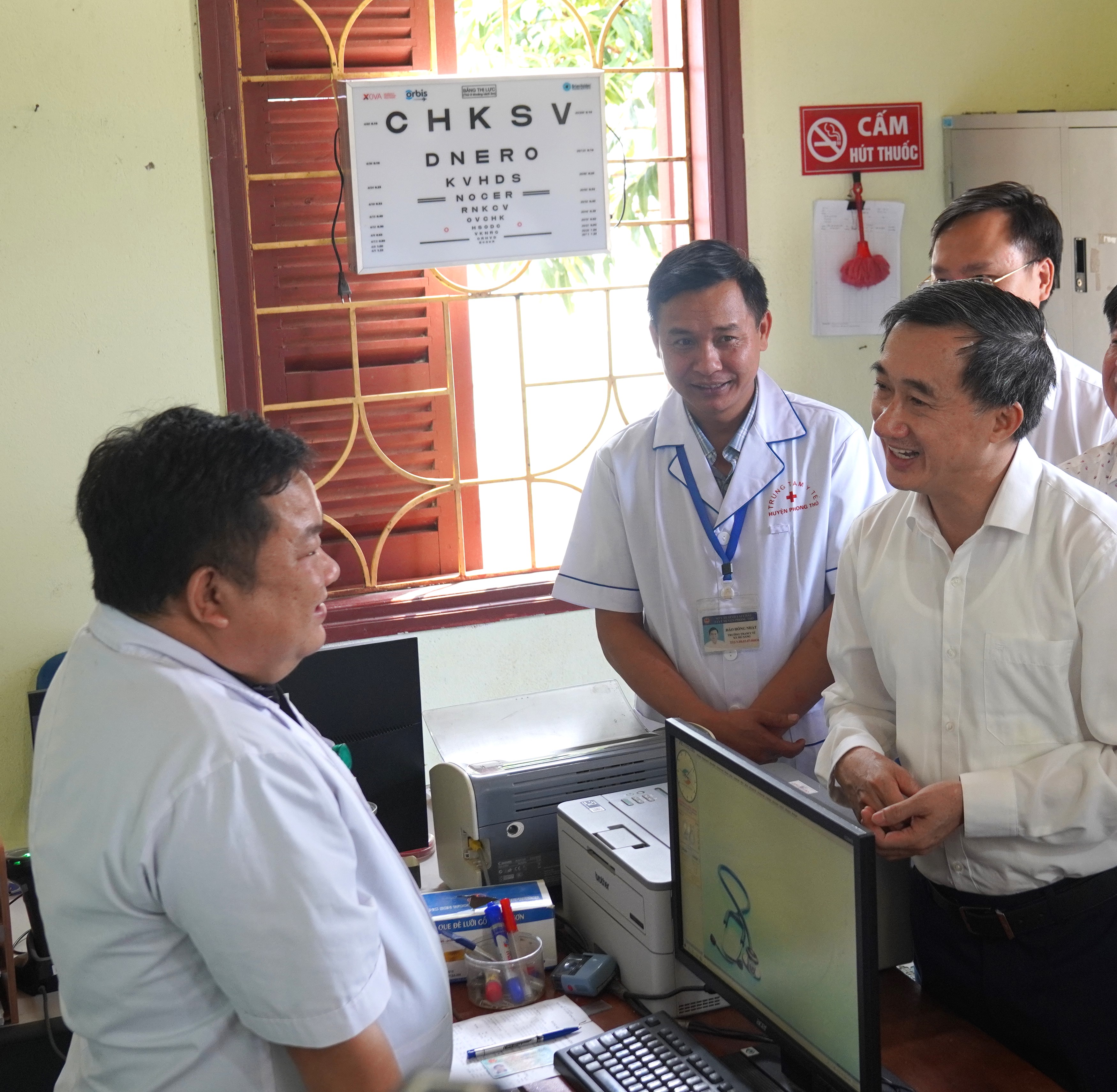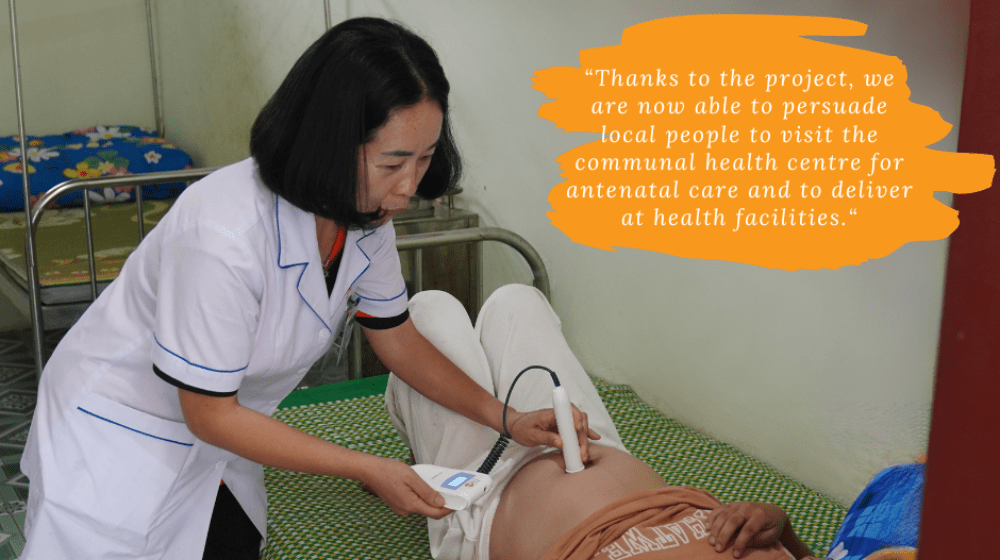“About two years ago, many local people felt reluctant to have antenatal check-ups and to deliver at health facilities. There were many reasons including the long distance to the nearest health facility as well as a lack of vehicles to get there and the cultural norm that only a husband can see his wife’s body”, shared Lo Thi Thanh the midwife at the Mu Sang Communal Health Centre.
Mu Sang commune in Phong Tho district is in the mountainous province of Lai Chau in the northwest region of Viet Nam. The province is home to 20 different ethnic minority groups, accounting for 80% of a total population of almost 500,000. Women aged 15-49 make up one quarter of this population. As a poor province Lai Chau faces socio- economic challenges and cultural barriers, which affect access to education and health care, especially mother and child health. In Mu Sang commune, there are only 7 health workers for 3,600 people, the majority of whom are from the Mong and Dao ethnic minorities. One of the major health problems for Mu Sang Commune and in Lai Chau province more broadly is a high maternal mortality ratio.
Whilst Viet Nam has made huge strides in reducing maternal mortality over 70% in the past 20 years to 46 deaths per 100,000 live births, the mortality ratio in remote ethnic minority regions remains three times higher than the national average. As part of its strategic efforts to achieve ‘zero preventable maternal deaths and zero unmet need for family planning’ UNFPA, the United Nations sexual and reproductive health agency, in partnership with MSD for Mothers funded the Project “Leaving no one behind: Innovative interventions to reduce maternal mortality in ethnic minority regions in Viet Nam”.
The project, in partnership with the Ministry of Health, seeks to ensure the provision of quality sexual and reproductive health services such as emergency obstetric care and to encourage positive health-related behaviours to end preventable maternal deaths in 60 remote ethnic minority communes across 6 disadvantaged provinces, namely Lai Chau, Son La, Bac Kan (Northern Midlands and Mountain region) and Kon Tum, Gia Lai and Dak Nong (Central Highland region).
Midwife Lo Thi Thanh, a Thai ethnic minority working at Mu Sang Commune Health Centre, has seen positive results from the project. She said: “thanks to the project we are now able to persuade local people to visit the communal health centre for antenatal care and to deliver at health facilities. We have also received additional training to recognise signs of possible pregnancy and childbirth complications. In the past, 99% of ethnic minority women delivered at home but this is now quickly reducing as more and more women give birth in hospitals. We hope that the project will continue to organise training to further improve the skills of not only health workers but also the village birth attendants who play a significant role in changing the local tradition of delivering at home.”

Midwife Lo Thi Thanh
These village birth attendants are equipped with skills to provide antenatal and postnatal care, manage normal deliveries and promptly refer women with complications to the nearest health clinic. More importantly, they are very experienced in raising community awareness about sexual and reproductive health and rights.
The Head of Mu Sang Commune Health Centre, Mr. Dao Hong Nhat, said results were immediately visible with only one maternal death in 2023. He said: “the UNFPA-funded project has provided us with basic medical equipment and helped improve our professional skills. We are now able to provide better health care services to our people. Though there remain a number of challenges, after two years of receiving support the number of expectant mothers receiving proper antenatal care and delivering at our centre is increasing. I hope that the project will continue to provide staff and the village birth attendants with more training and medical equipment, such as a medical ultrasound machine.”

Mr. Dao Hong Nhat (in the middle), Head of Mu Sang Commune Health Centre
During the project’s monitoring mission conducted jointly by the Ministry of Health and UNFPA in April 2024, Vice Minister of Health Mr. Tran Van Thuan stressed: “UNFPA’s technical support is practical and valuable. Today, we are very happy to hear about better quality services for maternal and child health care.”
UNFPA Representative in Viet Nam, Mr. Matt Jackson agreed: “medical staff and village birth attendants need the right equipment and tools to deliver quality sexual and reproductive health care. UNFPA in partnership with MSD for Mothers and MSD Viet Nam is committed to continuing our support to the Ministry of Health to end preventable maternal deaths and to ensure rights and choices for everyone, everywhere.”./.


